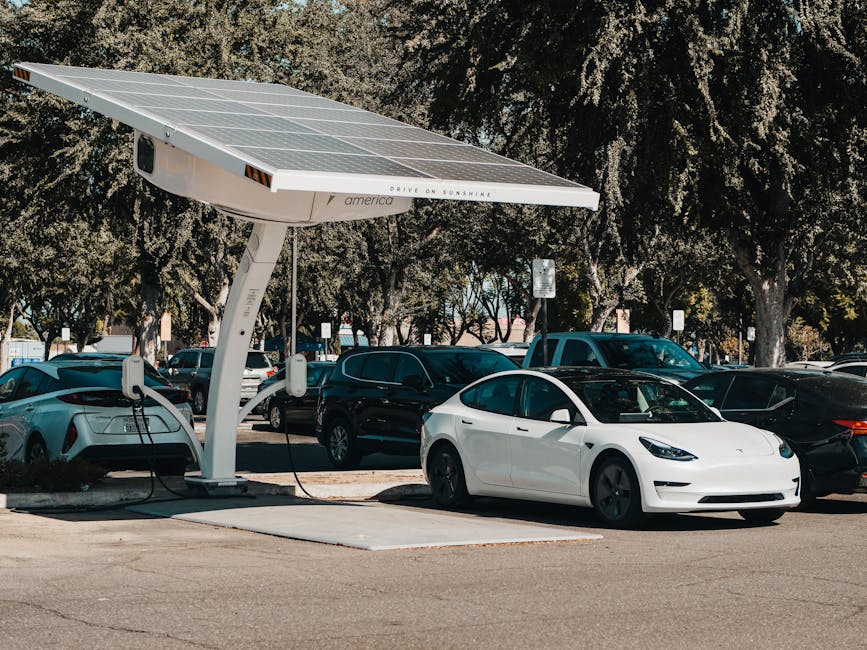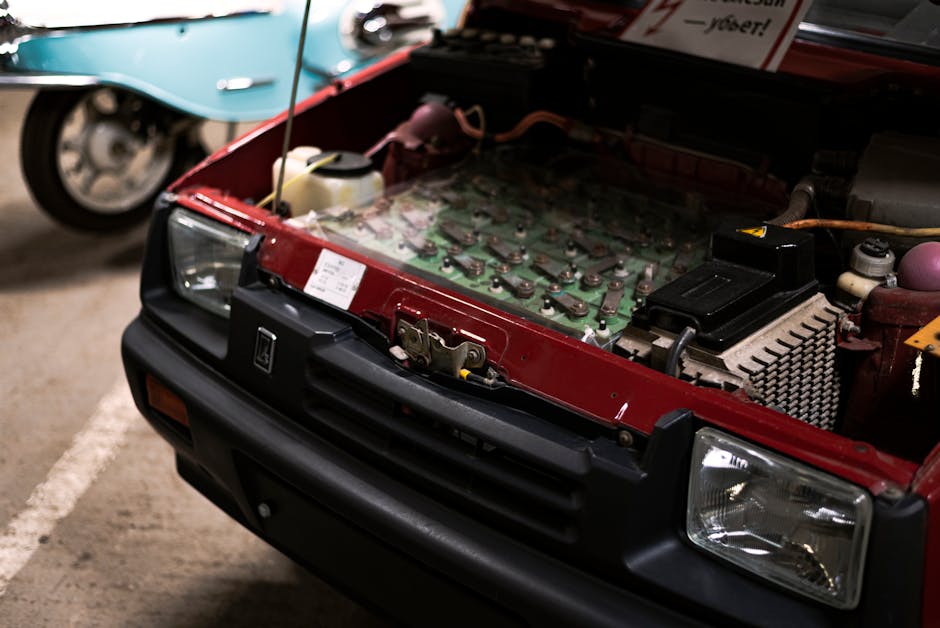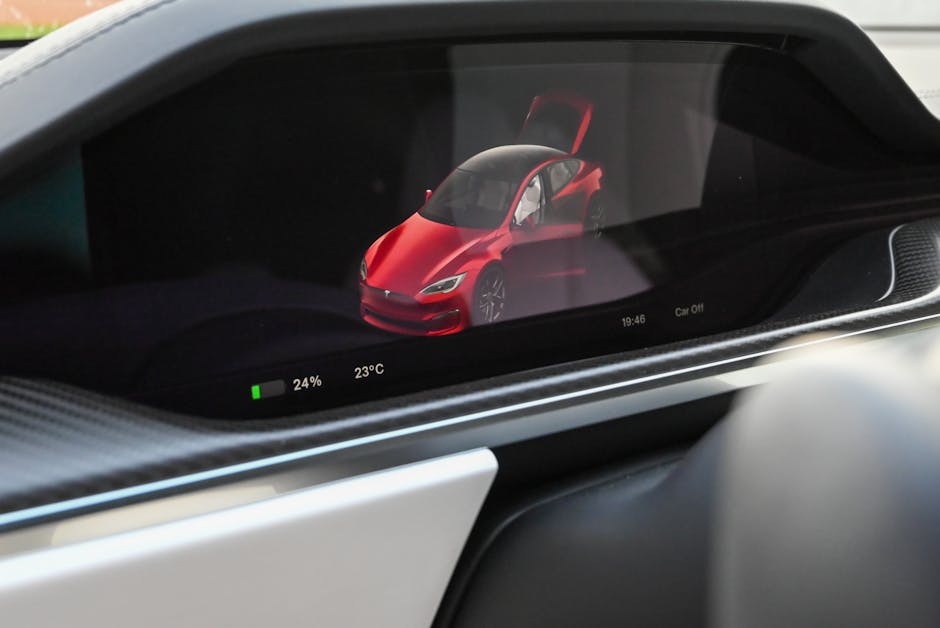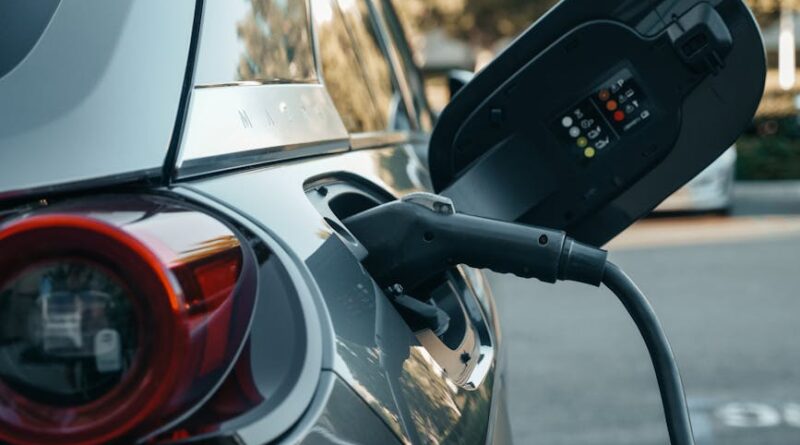Unleashing the Power: A Deep Dive into Electric Vehicle Battery Advancements
Electric vehicles (EVs) have been gaining significant momentum in the automotive industry, with more and more consumers opting for environmentally friendly transportation options. One of the key components driving the success of EVs is the advancement in electric vehicle battery technology. From improved range to faster charging times, electric vehicle battery advancements have the potential to revolutionize the way we think about transportation. In this comprehensive guide, we will explore the various aspects of electric vehicle battery advancements, from their historical origins to the latest breakthroughs shaping the future of electric mobility.
The Evolution of Electric Vehicle Batteries

Electric vehicle batteries have come a long way since the early days of EVs. In the late 19th century, lead-acid batteries were commonly used in electric vehicles, but they were heavy, bulky, and had limited range. It wasn’t until the 1990s that nickel-metal hydride (NiMH) batteries became the preferred choice for electric vehicles, offering improved energy density and longevity.
Today, lithium-ion (Li-ion) batteries are the most popular choice for electric vehicles, thanks to their high energy density, lightweight design, and fast charging capabilities. Innovations in battery chemistry and manufacturing processes have led to significant improvements in the performance and efficiency of electric vehicle batteries, making EVs a viable alternative to traditional internal combustion engine vehicles.
The Role of Battery Management Systems

Battery management systems (BMS) play a crucial role in ensuring the optimal performance and longevity of electric vehicle batteries. BMS monitor the state of charge, state of health, and temperature of the battery cells, helping to prevent overcharging, undercharging, and overheating. By actively managing the charging and discharging of the battery cells, BMS can extend the lifespan of the battery pack and improve overall efficiency.
Advancements in BMS technology have made it possible to implement smart charging algorithms that take into account factors such as temperature, voltage, and current to optimize the charging process. This not only reduces charging times but also helps to maintain the health of the battery cells over the long term.
Challenges and Opportunities in Battery Recycling

As the popularity of electric vehicles continues to grow, the question of what to do with end-of-life batteries has become increasingly important. Battery recycling is essential to minimize the environmental impact of EVs and ensure the responsible disposal of lithium-ion batteries.
Recycling lithium-ion batteries presents both challenges and opportunities. On the one hand, lithium-ion batteries contain valuable materials such as cobalt, nickel, and lithium that can be recovered and reused in the production of new batteries. On the other hand, the complex chemistry of lithium-ion batteries makes recycling a technically challenging process that requires specialized equipment and expertise.
Fast Charging Technologies

One of the key advantages of electric vehicles is their ability to refuel quickly and conveniently. Fast charging technologies have played a significant role in making electric vehicles more practical for everyday use. From superchargers to ultra-fast chargers, advancements in fast charging technology have reduced charging times from hours to minutes, making it possible to recharge an electric vehicle on the go.
Rapid charging technologies such as Tesla’s Supercharger network and Electrify America’s high-power charging stations have made long-distance travel in electric vehicles a reality. These fast charging networks are continuously expanding, with new technologies such as V2X (vehicle-to-grid) charging and bidirectional charging promising to further enhance the capabilities of electric vehicles.
The Future of Solid-State Batteries
Solid-state batteries are widely regarded as the next frontier in electric vehicle battery technology. Unlike traditional lithium-ion batteries, which use liquid electrolytes, solid-state batteries use solid electrolytes that offer higher energy density, faster charging times, and improved safety. By eliminating the flammable components found in liquid electrolytes, solid-state batteries have the potential to revolutionize the electric vehicle industry.
Companies like Toyota, Volkswagen, and QuantumScape are investing heavily in the development of solid-state batteries, with the goal of bringing these next-generation batteries to market in the near future. Solid-state batteries could significantly extend the range of electric vehicles, reduce charging times, and improve overall performance, making them a game-changer for the automotive industry.
The Impact of Electric Vehicle Battery Advancements
Electric vehicle battery advancements have far-reaching implications for the automotive industry, the environment, and society as a whole. By improving the performance, range, and efficiency of electric vehicle batteries, manufacturers are making electric vehicles more accessible and appealing to a wider audience. This, in turn, is driving the transition towards a more sustainable and environmentally friendly transportation system.
As electric vehicle battery technology continues to evolve, we can expect to see further innovations that will shape the future of mobility. From advancements in battery chemistry to breakthroughs in manufacturing processes, the possibilities for electric vehicle batteries are endless. The transition to electric vehicles is no longer a question of if, but when, and with ongoing advancements in battery technology, the future of electric mobility looks brighter than ever.
Common Misconceptions about Electric Vehicle Batteries
Despite the rapid advancements in electric vehicle battery technology, there are still some common misconceptions that persist. One of the most prevalent misconceptions is that electric vehicle batteries degrade quickly over time, leading to reduced performance and range. While it is true that all batteries degrade with use, proper maintenance and charging habits can help extend the lifespan of electric vehicle batteries.
Another common misconception is that electric vehicle batteries are not environmentally friendly due to the mining and extraction of raw materials such as lithium and cobalt. While it is true that the production of lithium-ion batteries has an environmental impact, advances in battery recycling and sustainable sourcing of raw materials are helping to mitigate these concerns.
Conclusion: Charting the Course for Electric Vehicle Battery Advancements
To wrap things up, electric vehicle battery advancements are at the forefront of the transition to a more sustainable and environmentally friendly transportation system. From the evolution of battery technology to the rise of fast charging networks and the promise of solid-state batteries, the future of electric mobility is bright. As manufacturers continue to innovate and push the boundaries of what is possible, we can expect to see even greater advancements in electric vehicle battery technology in the years to come.
Whether you’re a seasoned EV enthusiast or just beginning to explore the world of electric vehicles, the advancements in electric vehicle battery technology offer a glimpse into a future where clean, efficient, and powerful transportation is within reach. With each new breakthrough, we are one step closer to realizing the full potential of electric vehicles and ushering in a new era of sustainable mobility.




